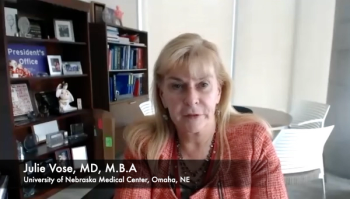
Julie Vose, MD, MBA, a professor of internal medicine in the Division of Oncology and Hematology at the University of Nebraska Medical Center discussed the benefits of CAR T-cell for patients with follicular lymphoma.

Your AI-Trained Oncology Knowledge Connection!


Julie Vose, MD, MBA, a professor of internal medicine in the Division of Oncology and Hematology at the University of Nebraska Medical Center discussed the benefits of CAR T-cell for patients with follicular lymphoma.

CancerNetwork® sat down with Julie Vose, MD, MBA, at the 2021 American Society of Clinical Oncology Annual Meeting to talk about a clinical trial comparing acalabrutinib versus ibrutinib for patients with chronic lymphocytic leukemia.
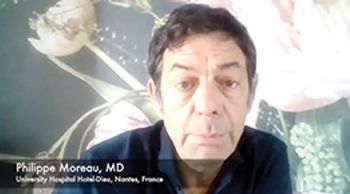
Moreau discussed conclusions drawn from part 2 of the CASSIOPEIA trial and the need for further follow-up with bortezomib, thalidomide and dexamethasone plus maintenance daratumumab in newly diagnosed multiple myeloma.
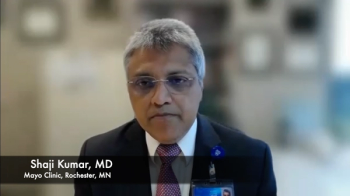
At ASCO 2021, Shaji Kumar, MD, talked about the impact of adding daratumumab maintenance to therapy for patients with newly diagnosed multiple myeloma in the CASSIOPEIA trial.
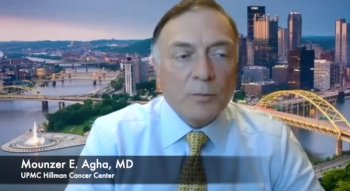
During a discussion at ASCO 2021, Mounzer Agha, MD, talked about mitigation strategies used by the investigators from the CARTITUDE-2 trial to prevent cognitive and neuro-movement disorders commonly associated with CAR T-cell therapy.

Moreau detailed the patient characteristics of those enrolled on the CASSIOPEIA trial, which investigating bortezomib, thalidomide and dexamethasone plus daratumumab in patients with newly diagnosed multiple myeloma.
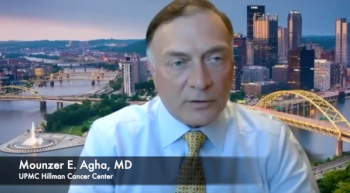
Agha emphasized that the annual conference allows investigators to set the foundation for what’s to come in the treatment of multiple myeloma and other hematologic malignancies.
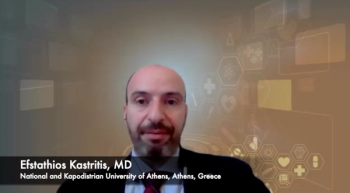
Hematologic responses improved for patients treated with daratumumab plus VCd versus VCd alone in the ANDROMEDA trial.
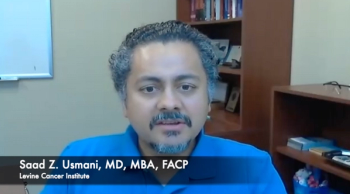
Usmani detailed the primary results from CARTITUDE-1, focusing on overall response rate and stringent complete responses.

Moreau discussed the implications of the second part of the CASSIOPEIA trial at the 2021 ASCO Annual Meeting.
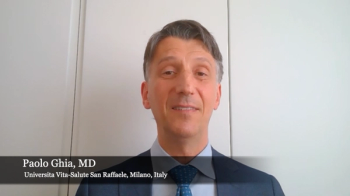
Paolo Ghia, MD, PhD, discussed data from the CAPTIVATE trial of ibrutinib/venetoclax in the frontline setting for chronic lymphocytic leukemia.
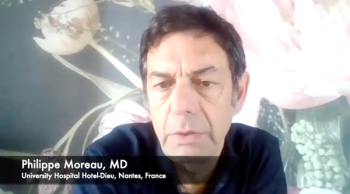
Moreau highlighted important updates in the field of multiple myeloma, including the CARTITUDE-1 trial, which yielded promising results with ciltacabtagene autoleucel and read out at the 2021 ASCO Annual Meeting.
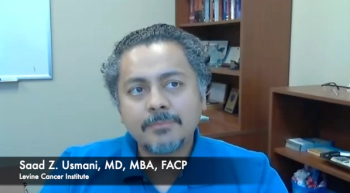
Usmani highlighted the FORTE study as one of the trials investigating the high-risk cohort of patients.
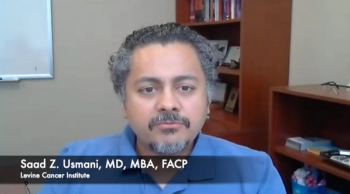
Usmani discussed the common adverse events observed from CARTITUDE-1, including hematologic events and cytokine release syndrome.
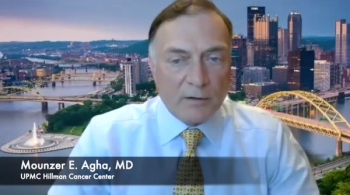
Agha detailed updated findings from CARTITUDE-2 investigating cilta-cel for previously treated patients with multiple myeloma.

Data presented at 2021 ASCO indicated that chimeric antigen receptor therapy with ALLO-501A plus ALLO-647 lymphodepletion showed promise in patients with relapsed/refractory large B-cell lymphoma.
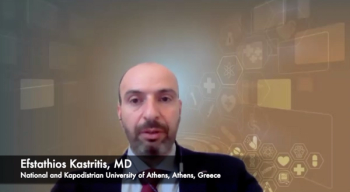
The expert discussed key details from the phase 3 ANDROMEDA trial presented at the 2021 ASCO Annual Meeting.

Ola Landgren, MD, PhD, looks at results from the phase 2 CARTITUDE-2 trial of ciltacabtagene autoleucel for patients with multiple myeloma and 1 to 3 prior lines of therapy presented at the 2021 ASCO Annual Meeting.
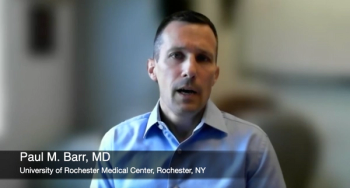
CancerNetwork® sat down with Paul M. Barr, MD, at the 2021 ASCO Annual Meeting to talk about what data has the greatest potential to impact standard treatment of chronic lymphocytic leukemia.
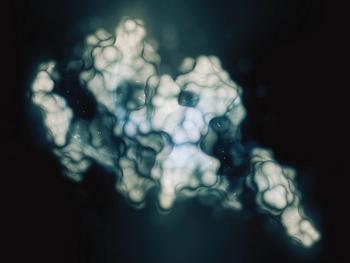
Subcutaneous Elranatamab had high response rates when given at or above 215 μg/kg.

Data from the MonumentTAL-1 trial detailed the benefits with the recommended phase II dose of talquetamab to treat patients with relapsed/refractory multiple myeloma.

Treatment with the off-the-shelf, full-size BCMA X CD3 bi-specific antibody appeared well tolerated with promising efficacy among patients with relapsed/refractory multiple myeloma.
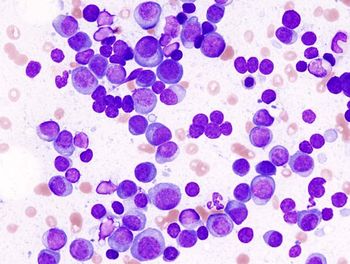
The investigational BCMA-directed CAR T-cell therapy sustained durable responses for heavily pretreated patients with relapsed/refractory multiple myeloma.
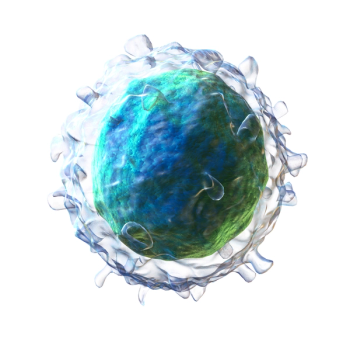
CAR066, showed a favorable safety profile and promising efficacy in the treatment of adult patients with relapsed/refractory B-cell non-Hodgkin lymphoma who failed prior CD19 CAR T-cell therapy.

Compared to upfront autologous stem cell transplantation for newly diagnosed, transplant-eligible patients with multiple myeloma, carfilzomib consolidation with cyclophosphamide and dexamethasone produced noninferior results.
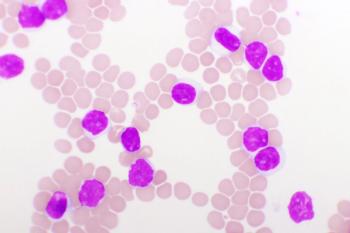
The combination treatment produced complete responses in more than half of the patients included in the phase 2 CAPTIVATE study.
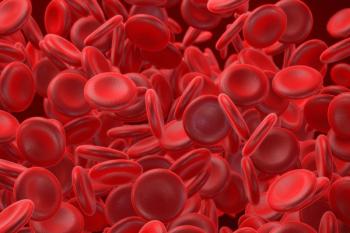
While survival rates were similar, acalabrutinib had lower rates of atrial fibrillation and other adverse events than ibrutinib for previously treated CLL.

In a first-in-human study of patients with relapsed or refractory multiple myeloma, the autologous CAR T-cell therapy CART-bbBCMA led to at least a partial response in all treated patients.
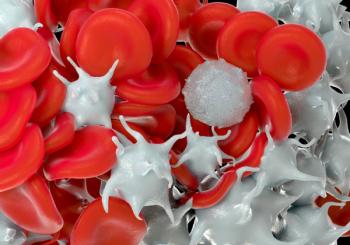
Results of a phase 1/2 trial presented at the 2021 ASCO Annual Meeting show the feasibility of an approach targeting CLL-1 cells in pediatric patients with relapsed or refractory acute myeloid leukemia.
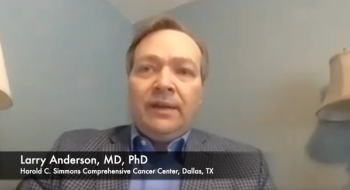
CancerNetwork® sat down with Larry Anderson, MD, PhD, at the 2021 ASCO Annual Meeting to talk about updated data from the KarMMa trial of CAR T-cell therapy idecabtagene vicleucel to treat patients with relapsed or refractory multiple myeloma.